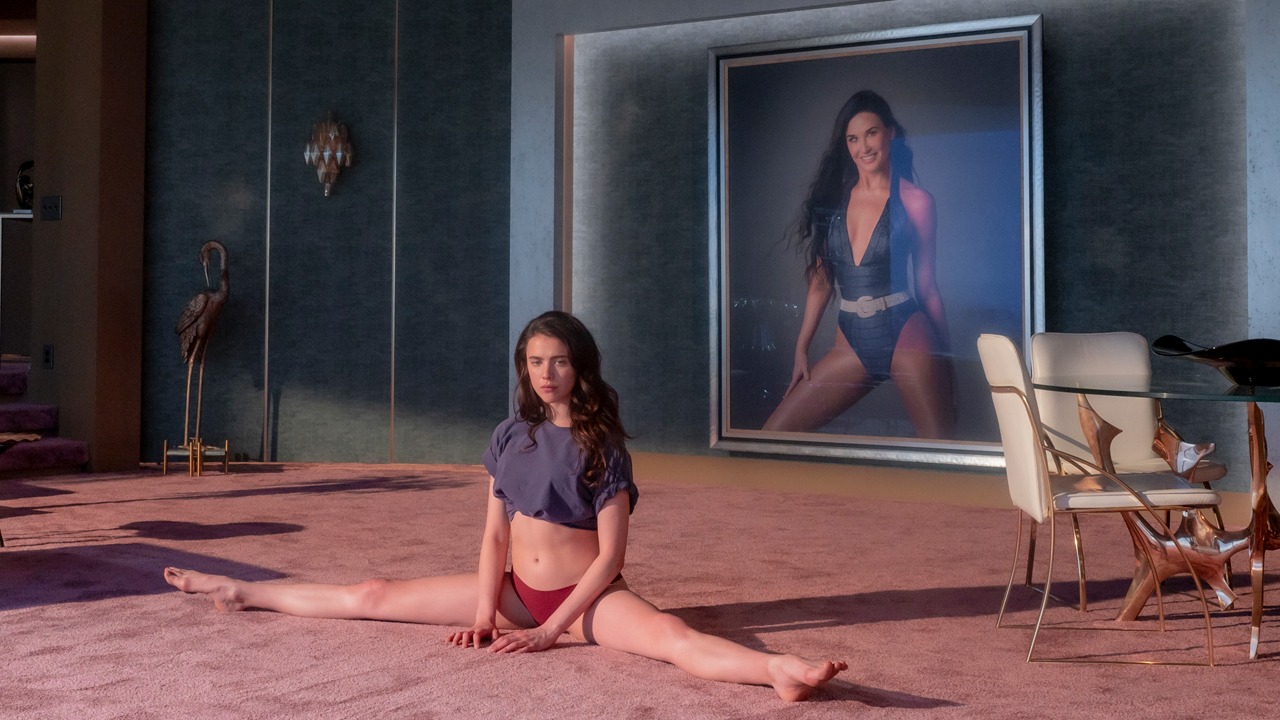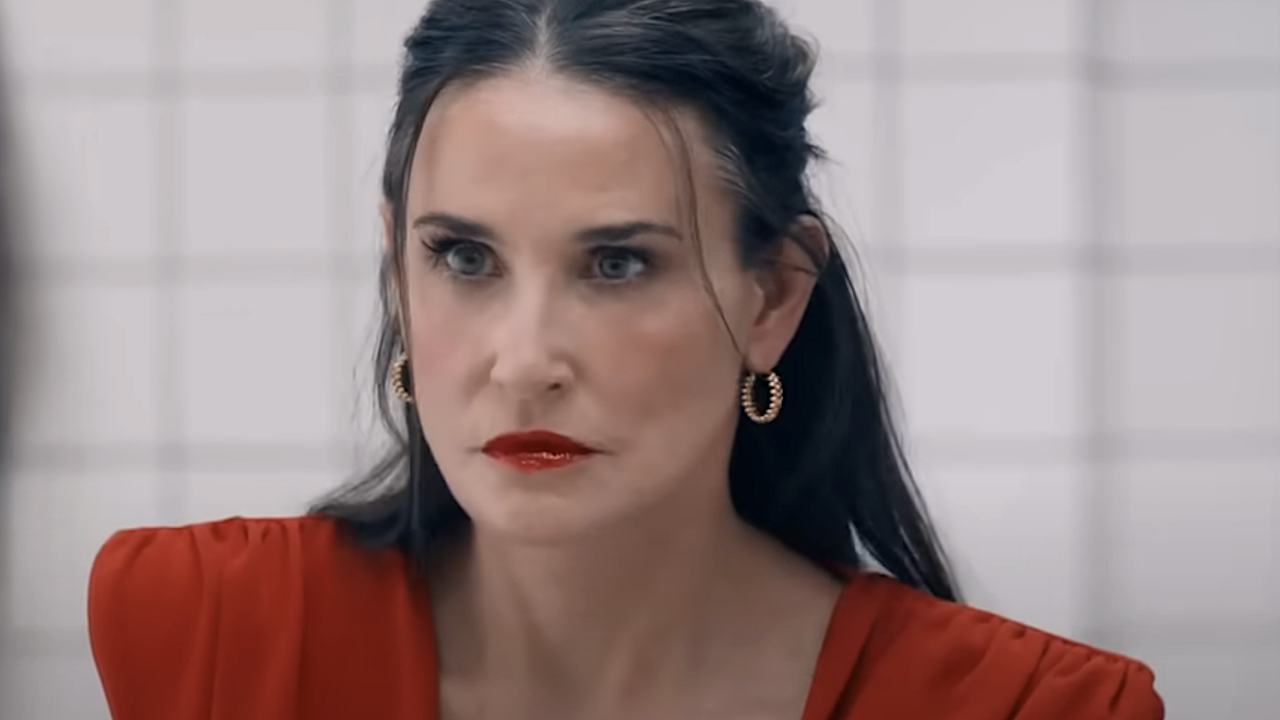
There are some SPOILERS ahead The fabric.
I’m perfectly happy walking out of the theater with a smug smile on my face after enjoying a nice little escape from the corners of my reality into a dark room with a group of strangers. But every now and then a movie like The fabric comes along (one of the best horror movies I’ve seen it for a while) and I leave a movie theater feeling as if the projected images I spent the time with have badly burned my skin, and I walk to my car in silent contemplation of what I’ve just seen. I don’t want every moviegoing experience to feel like this, but when it does, I remember and cherish the power of movies even more.
The body horror film received a perfect five-star score in CinemaBlend’s The fabric judgementand has was praised by numerous criticsbut that’s what it is a lot of to stomach. It’s not something I would easily recommend, given its intense nature. Heck, I even thought about walking out at a few points, and absolutely covered my face in fear. I can only compare my viewing experience The fabric to different intensity found in the insane twist that ends with Midsummer or the many feelings I had about it Bones and all. But at the same time, it’s much more than blood and guts the nudity for which it has gone viral. It has a very powerful message about self-love that I will definitely carry with me for a long time. I still get chills thinking about it, and now that I’m no longer in the film’s cruel embrace, I can say that I’m glad I started seeing the film because of what I took away about self-love.

(Image credit: Mubi)
The substance tackles the fear of aging with a powerful concept
The fabric immediately caught my attention when the following happened Demi Moore‘s Elisabeth Sparkle, a celebrated Hollywood star and leading actor in a long-running aerobics show. In a very literal move from the film, Moore is fired on her 50th birthday and discovers she will be replaced by a younger talent. But then she hears about a black market drug called ‘The Substance’ that allows her to be young every other week. She orders the mysterious drug and transforms into Margaret Qualley’s Sue every other week, trading consciousness in her own body and giving it up for Sue’s perfect young body. Sue gets the job to replace Elisabeth as the recently retired star becomes a side character in her own life, spending her entire week in her body in front of the TV and eating a ridiculous amount of food. It only gets worse from there.
I found this setup in itself very powerful, because through its concept it illustrates how easy it can be for someone like Moore’s Elisabeth to focus his energy on what he was in his younger years, rather than living in the present. We place so much emphasis and value on young women and their bodies, and I have seen firsthand women in Elisabeth’s age range subtly demeaning their current selves and glorifying the times when they were in their twenties. It almost feels like human nature that we will mourn what is seen as the most beautiful version of ourselves that we can be. But wow, I did watch it The fabric make me acutely aware of how that mentality comes at the cost of betraying ourselves, especially through its visual concept.

(Image credit: Mubi)
But at no point in the content did I prefer Sue
As writer/director Coralie Fargeat has powerfully achieved The fabricat no point in the film did I want Elisabeth Sparkle to be Sue instead of herself. While I could understand Elisabeth being uncomfortable with her body and feeling like a cast-off from Hollywood of yesteryear, I wanted to see her move much more forward with her next chapter in her original body – to see her go on the date that she is invited early in the film to see her embrace the beauty I saw in her.
Of course, as horror films do, Elisabeth Sparkle doesn’t get the happy, middle-aged coming-of-age arc I wanted to see. Instead, I watched her give up her time and her body for a younger version of herself. I kept saying to myself… Why does she want to relive those early years? Why does she think it is so important to be perfect, when she is already stunningly beautiful? This is one really intense way to treat yourself. Sure, being younger meant less to worry about, but earning it is such a privilege.
It’s Demi Moore…of course she’s beautiful and iconic. Why not she do you see that? This element of the film made me look further at my own inner monologue and how I can have empathy and appreciation for the beauty of others, and find myself being more critical of my own. It’s easy when we look at ourselves in the mirror every day, but my goodness, I did The fabric Communicate the violence of not being careful with your self-image with a sharp syringe full of green goo that enters his body in the gruesome second half.

(Image credit: Mubi)
The material reminded me how important self-love is
I was also intrigued by my reaction to that The fabric because I’m in my twenties now, and I could relate to Demi Moore’s character a lot more than I expected. It made me take a step back and realize that honestly I think I would have dated her earlier in my twenties and also as a teenager. All women will likely identify with Elisabeth Sparkle because regardless of one’s age or beauty, we are constantly fed that we will never be enough. Margaret Qualley’s Sue is the ideal – she is not real or sustainable. She is a perfect social media, photoshopped magazine concept evoked through Elisabeth hate themselves as she is. And that was heartbreaking for me, because it’s so easy for women to see through their own beauty and strive for this broken ideal. Pretty early on in the film, I wanted to embrace my beautiful body and take back all the mean words that had ever come into my head about it, because the ideal is not as beautiful as what is real and true.
If The fabric on display so beautifully and viscerally, the ideal that is Sue is also created and maintained at the expense of Elisabeth’s own self-love. While the film shows its concept intensely and literally as the plot progresses into its body horror madness, Sue begins to distance herself from Elisabeth’s beauty in order to exist and survive, and I shuddered at the results. (This is when the movie really go There!) I won’t go into the details of the final act, but I was intrigued by the end The fabric Elisabeth wants to have her own face, but in the most depressing and nightmarish way possible.
Strangely enough, I look in the mirror with more kindness afterward The fabricand it’s rare that a movie that’s also this campy, gory, and ridiculous inspires that. I’m not sure how upcoming horror movies are going to surpass them for these reasons.